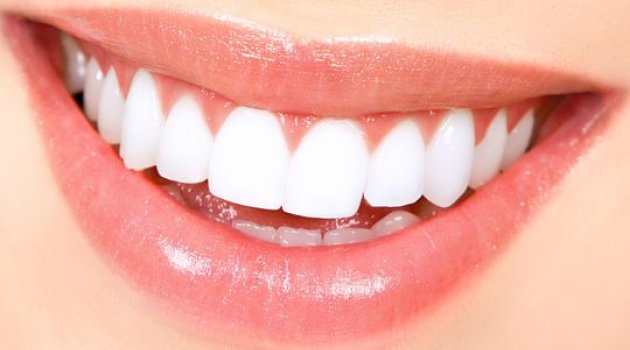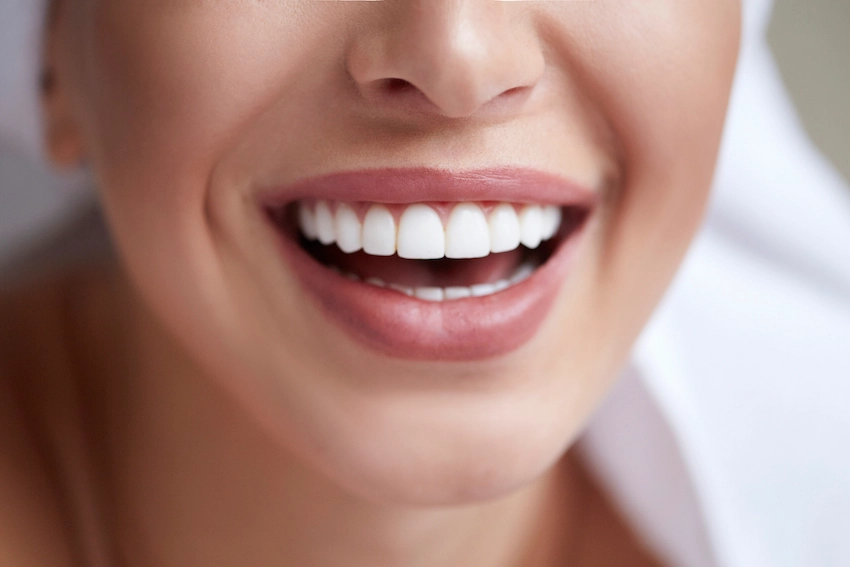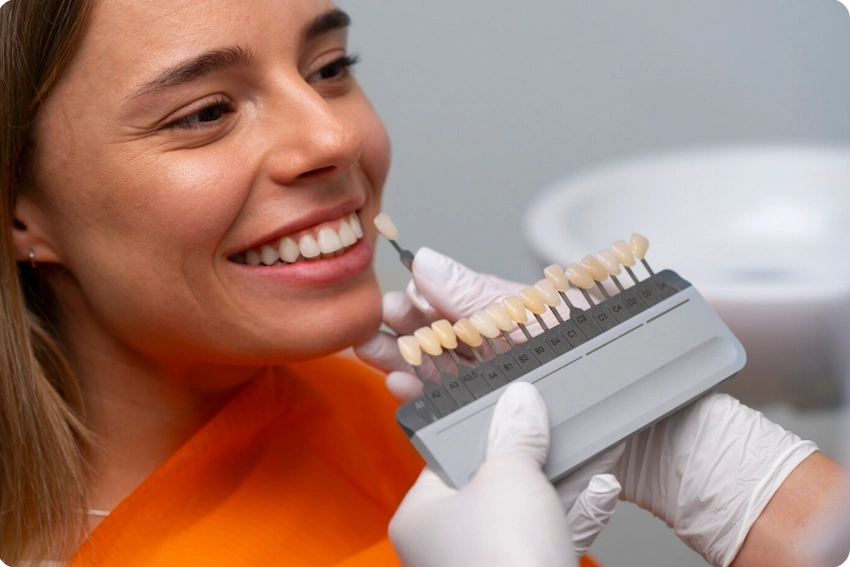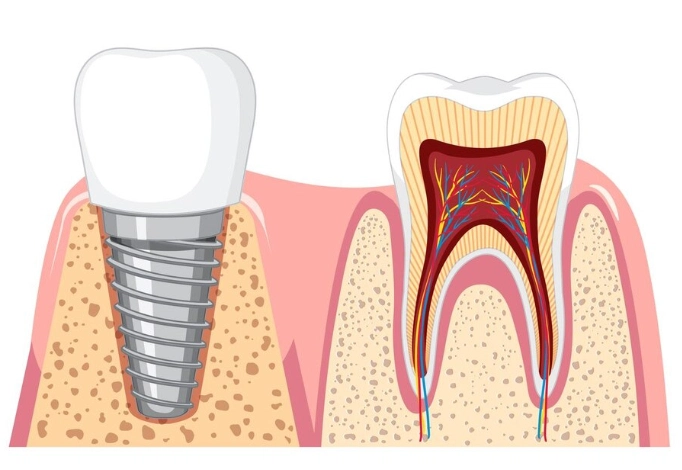🦷Steps To Achieve Perfect Teeth

Getting the perfect teeth is not just a one-time trick, it’s a combination of; being consistent while brushing regularly, making sure to floss and visiting the dentist on a regular basis. For the best health of your mouth, one should not only focus on the type of food to take but rather have a balanced diet and reduce the intake of sugary products.
In trying to achieve the perfect smile, it is all about proper care, professional counsel, and habits set in the right direction. Starting from making the right choice of a toothbrush to the effect of the food we eat on our teeth, there are a number of aspects on which emphasis must be laid. Explore this article to learn about some useful procedures that can create an incredible change in your teeth and uplift your spirit to the fullest!
Strong Reasons for Practicing Dental Hygiene
Each and every one admits that practicing good dental hygiene is important for and benefits not only the mouth and teeth but the body as a whole. It is the major way to avoid cavities and gum diseases. Other than keeping your mouth fresh, it can also earn you the confidence that you can have the perfect teeth.
Besides, proper dental care significantly cuts down your chances of being diagnosed with any disorders or diseases associated with the mouth. However, this is a skill that must be mastered and that should include brushing and flossing your teeth as often as possible and seeing the dentist as directed. The one thing we can’t afford to forget is that we possess the best ornament ever for smiling, hence we must always have this in mind and practice proper oral hygiene.
Brushing Techniques for Healthy Teeth

Your tooth brushing method is a very important detail for your general oral hygiene and when done right, it can bring amazing results. To optimize your teeth brushing methods and maintain your teeth in bright and good condition make it the perfect teeth follow these techniques:
- Get the Right Toothbrush: Choose a toothbrush with soft bristles so as not to damage the sensitive gums.
- Use the Right Toothpaste: Select toothpaste that contains fluoride which is instrumental in strengthening tooth enamel.
- Brush Like Clockwork: Get into the habit of brushing your teeth two times a day, ideally after breakfast as well as once before bed.
- Proper Brushing: Master the proper brushing technique starting with holding the toothbrush at a 45-degree angle, and brushing in gentle circular motions that cover one tooth at a time.
- Don’t Neglect Your Gums and Tongue: In addition to your teeth, you ought to take care of your gums and tongue. Use a soft-bristled brush for your gums and gently brush your tongue in front of the mirror.
- Rinse and Store: After brushing, rinse your mouth thoroughly then appropriately store your toothbrush upright in an open area to thoroughly dry.
- Brush for Two Minutes: Make sure you brush your perfect teeth for at least two minutes or more because a proper length of time will remove so much of the plaque as well as the food particle on your teeth and thus assist in making them clean and healthy.
- Use Proper Technique: It is highly recommended you use as this will help to attain a 45-degree angle to the gums hence increasing the efficiency of the cleaning. The circular motion is highly recommended for the purpose of ensuring that you effectively clean your teeth. This kind of over the surface brushing of your teeth is very important for the purpose of achieving an extensive cleaning of your teeth.
- Don’t Forget Your Tongue: Your tongue is an essential part of your mouth and hence you need to treat it carefully, ensure you’re in the regular practice of using your toothbrush and gently cleaning the tongue in order to expel most bacteria that would cause bad breath.
By having or following such techniques while brushing, you ensure your teeth achieve as well as maintain the most different white and healthy appearance throughout their lifetime.
Flossing: A Key Step for Perfect Teeth
Flossing is another critical practice that, when used correctly, can contribute to remarkably healthy teeth and gums. Flossing is a technique that is highly recommended for the removal of food particles and plaque that may stick between teeth and cannot be reached through comfortable brushing, mostly in between tooth spaces, between the gums, and in other rare areas.
Flossing is essential because, by itself, it combats tooth decay and cavities but it also substantially eliminates the chances for the diseases of the gums. Besides, near elimination of germs between the teeth or germs from the area affects periodontal disease’s prevention as well as in the treatment of gum disease. To significantly improve the efficiency of cleaning with regard to the minimal areas of the mouth, it is recommended that you include flossing as a daily routine in your mouth cleaning so you can have the perfect teeth.
Importance of Dental Hygiene

Dental care is often stated as the key to one’s well being physically and emotionally. People, on the other hand, disregard the significance of dental hygiene as well as its impact on oral and body health. The most common factors found in individuals who do not partake in oral care include a lack of pain signs from problems such as cavities, gum disease, or bad breath. In addition to the issues these diseases give to the person suffering being very discomforting, the oral health condition of the patient can give way to problems like myocardial infarction, diabetes, stroke, and even complications during pregnancy.
Routine measures such as perfect teeth brushing daily, good food intake, and regular dental check-ups are the way for having and maintaining a healthy mouth and a good smile. When you take care of your mouth it means you are healthy. You should not be so careless about your mouth in regard to taking care of it that it is of no importance since it is the first part of your body that other people notice.
Regular Dental Check-ups and Cleanings
Conventional dental visits and cleanings constitute a major part of the basis for effective dental care and health. One of the most important tasks that this action involves is the examination of your teeth at a dentist’s clinic in order to identify diseases in the early stages. This is the only way that heart and related oral illnesses can be addressed in their early stages, effectively avoiding the occurrence of future suffering due to the decay of such diseases. Not only do dental prophylaxis and check-ups at a regular interval give assurance of the teeth, but at the same time, they set the ground for the identification of any issue.
Some of the main advantages of regular dental check-ups are the following:
Early Detection of Issues
Being apprised when something goes wrong not only allows you to save money but also your valuable time. In the early stages of cavities and periodontitis, your dentist will find it and start a very easy and even quite cheap treatment. Therefore, you can have frequent visits to prevent you from undergoing complex dental treatments in the future. Experience the effortless and effective way to keep your mouth healthy and avoid tooth destruction and decay with regular check-ups. We all have a common goal of smiling happily and freely, which routine visits will ensure.
Professional Cleaning
It is a fact that toothbrushes and flosses are not perfect teeth therefore they miss out on some areas in which plaque and tartar reside even if you brush twice for 2 minutes each and visit your doctor every six months. This is where dental hygienists make their presence felt. Their main expertise lies in the elimination of plaque and tartar from the gums. Most importantly, these professionals are going to observe that you do not overuse your tooth and floss and that you are able to clean those difficult reachable areas entirely. Having the teeth professionally cleaned at regular intervals is an indispensable part of the doctor’s general treatment of the patient’s dental health. This is the same as visiting one’s physician for a medical check-up.
Customized Oral Care Advice
Your general dentist should be able to not only spot the problems that you have but also show you the strategies that are directed at improving your oral health. Given that each mouth is unique and thus each oral health need is distinct, your dentist can give the correct solution and guidance on the products and techniques that best fits you. Your dentist will give tips on brushing and the use of dental floss in the best manner, and most suitable dietary products that can clean and even prevent cavities and have the perfect teeth.
Frequently Asked Questions About Dental Hygiene
Maintaining healthy teeth requires regular brushing with fluoride toothpaste, daily flossing, and regular dental check-ups. Avoiding sugary foods and drinks, along with practicing good oral hygiene habits, plays a crucial role in preventing tooth decay and gum disease.
Brushing your teeth properly ensures the removal of plaque, bacteria, and food particles from your teeth, preventing decay and gum disease. Use a soft-bristled toothbrush and brush for at least two minutes, focusing on all areas, including the gums and tongue.
It is recommended to brush your teeth twice a day—once in the morning and once before bed. This ensures that your teeth stay clean and free from plaque buildup, which can lead to cavities and gum disease.
Flossing is essential for removing food particles and plaque from between your teeth and under the gumline, areas that a toothbrush cannot reach. Daily flossing helps prevent cavities and gum disease, contributing to overall oral health.
Regular dental check-ups allow your dentist to identify and treat dental issues early, preventing complications like cavities or gum disease. Professional cleanings remove plaque and tartar buildup, and your dentist can offer personalized advice for better oral care.
A balanced diet rich in vitamins and minerals, especially vitamin C and calcium, helps maintain strong teeth and healthy gums. Limiting sugary foods and acidic drinks can prevent tooth decay and staining, while water helps keep your mouth hydrated and free from bacteria.
Fluoride strengthens tooth enamel, making it more resistant to decay and helping to reverse early signs of tooth damage. It is commonly found in toothpaste and mouthwashes, and it can be professionally applied by your dentist for added protection.
Yes, smoking can contribute to tooth discoloration, gum disease, and bad breath. It reduces blood flow to the gums, which weakens the immune response and makes it harder for the gums to heal from infection, increasing the risk of tooth loss.
Tooth sensitivity can be caused by enamel wear, gum recession, or tooth decay. Using desensitizing toothpaste and avoiding acidic or hot/cold foods can help. If the problem persists, consult your dentist for an assessment and treatment plan.
To prevent gum disease, maintain a thorough oral hygiene routine, including brushing, flossing, and visiting the dentist regularly for cleanings. Avoid smoking, limit sugary foods, and ensure that you’re addressing any gum irritation or bleeding early.




